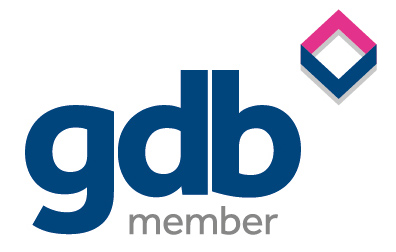Harvey John
Unit 2 Ferry Wharf
Hove Enterprise Centre
Basin Road North
Portslade, East Sussex
BN41 1BD
For many hiring managers, recruiting is often yet another thing to add to a never-ending ‘to-do’ list. Allocating time to review applications, let alone planning and conducting interviews, can be a tall order when multiple deadlines are looming.
You’re sitting at your desk and the calendar pops up saying an interview is happening soon. You print off the CV, jot down some quick questions, and off you go as time is of the essence! I can certainly hold my hands up to having done this before. You walk into the interview and trust your judgement; after all, you’ve interviewed tons of people in the past…
However, a planned and thorough interview is not only time well spent but the time saved long-term. Initially, it’s time we feel that we don’t have but it is worth finding. If not, you might find yourself re-recruiting the same role in a few weeks. Ultimately, if your interview process lacks depth, you’re likely to miss out on valuable insight, both positive and negative, on your next recruit.
From observing my own and other’s recruitment experiences, here are a few key interview mistakes that frequently creep in:
Not using relevant or mixed questioning
You need a rounded, balanced view of the candidate. Mix things up! They might be able to do the role from a technical perspective but if their moral code doesn’t fit the business, you’ll soon have a problem.
How to overcome this? Ensure you alternate between technical, closed and open-ended, competency-based, and just general “getting-to-know-you” questions. Plan what you’ll ask and make sure questions are specific to the vacancy, not just you’re usual ‘go to’ question. It’s also important to be aware of a candidate actively interviewing elsewhere as they may have their answers almost word-perfect from memory. Finally, don’t ask them to tell you their strengths and weaknesses for the fifth time that week, be original. Get them to think on their feet.
‘Chatting’ and running out of time
When the conversation is flowing, it’s easy to go off on a tangent. Stay focused! Keep a subtle eye on the time and even book out the meeting room for an extra 30 minutes more than you think you’ll need as you must cover those essential planned questions. Even if the rest of the interview has gone swimmingly well, the answer to the question at the bottom of the list could set off the alarm bell which prevents you from making the wrong hire!
Never forget that it’s about them – let them do the majority of the speaking and don’t be afraid to pause. It’s amazing what added insight you get from that extra point they make in that moment of silence. I’m a talker, I ramble, and it’s annoying – we ‘talkers’ need to make sure we know when to rein it in.
Not communicating the interview process at an early stage and over-complicating it
Candidates judge a company by their interview process. No one can deny that it shapes their perception of the business. Candidates also go on holidays, attend other interviews, and hate checking their emails constantly waiting for an update.
A pre-determined and communicated process suggests the company is organised, methodical, and knows how to recruit the right staff. It also prompts them to notify you of holidays and other interviews. There can be a slight deviation from the plan as – let’s face it – you never know what someone else’s calendar will look like that week; therefore keep as structured as you can. I’ve heard many a sigh from candidates expecting a verdict that day and I tell them that a third or fourth unexpected meeting is now needed. If they knew it was coming before, that ‘sigh’ would be avoided.
And do they need to meet everybody? We can’t just think internally. Yes, it would be nice if they met the entire team and everyone they’ll come into contact with before they started but does it take several rounds of interviews to clarify you’re uncertainty about them? What will they think if they’ve taken more time off to be asked the same questions they were 2 days ago? What happens when they get an offer from a different company that evening that subsequently wants a decision tomorrow?
Not selling it to them too
You need to hire someone, they’ve come to the interview, and they just want the job… not always the case!
Sometimes the perfect candidate might be assessing you in the same way you’re assessing them. They will change jobs but, as I hear 100 times a day ‘it has to be for the right role’. A great candidate isn’t always an actively looking candidate. Not every candidate hates their current job. They went to an interview yesterday and the MD there took the time to tell them why they would want to work there and what’s great about his company. We might fire questions at them for an hour, then show out a candidate who’s now feeling like they’ve been grilled rather than sold. Sell it to them, regardless of how junior or senior the role, that junior candidate might be your perfect Financial Controller in 5 years.
Poor tests
Tests are tough – not just for the candidate but also to create! I agree with tests, they add evidence to what a candidate says they know, and a good interview process should include a variety of formats. We have every right to test, we just need to do it well – and, so do they.
I’ve known on occasions that candidates write off a job opportunity without even hearing how they did because of a bad test. They’ve already closed the door mentally and the opportunity has been tarnished somewhat when I tell them that the test was wrong and they’re still in contention. Also, what impression does a poor test give us as the hiring company?
Don’t do it last minute. Ensure the room/computer you need is available. Make it relevant to the knowledge the role requires and ensure they have all the info they need. Remember, they’re likely external and therefore haven’t used your systems and processes (failing to pick up the nuances). Get someone who isn’t an applicant to do it to see what they think and how they score – and take note of the feedback. Another thing to be aware of is the candidate’s impression of being tested and what they are being tested on. What will they think if the test related to this role is too easy? Do they think you’ve added in a test because you have doubts or was it always part of the process?
Being too keen
Don’t make it too easy and don’t show them if you’re ‘wowed’. Candidates expect to be assessed during an interview process and to feel that sense of achievement when they work towards and get offered a role.
If it’s too easy, they’ll question the sincerity of the offer and wonder if they’re under-selling themselves. Should I be going for a more senior role? Should I be asking for more money?
Of course, it’s good to make the interview a positive experience and give good feedback – you should like each other – but don’t fall in love right away otherwise, you’ll scare them off! One key contributor to this can be found as ‘the one’ after weeks of disappointing interviews, or other candidates pulling out. For them, however, this is the very start of the process. They’ll love you too, but they just need to get there!
Are you sure you want to offer in the interview?
In my experience, this will spook candidates most of the time. Candidates don’t expect to be offered face-to-face unless it’s been specifically suggested beforehand. Also, a candidate’s salary expectations 2-3 weeks ago might not be their salary expectations now as they’ve attended other interviews, had other offers and realised they should be themselves pitching higher. They’ve also now driven to your office and back home, realising they’ll be using twice as much petrol as they previously thought. Finish off by asking (even if it’s been asked before) what package they’re hoping for, write it down, and offer it to them tomorrow. Let them go home, think about it, make their mind up, assess if they’ve got any remaining questions, and then let your Recruitment Consultant manage the offer!
To discuss interview best practices, please contact Georgina Trudgill to discuss further.
—
Georgina Trudgill is an Associate Director in the Accountancy Division at Harvey John.
Search our latest accountancy and finance jobs here.
If you would like to see our company updates and industry insights, follow our LinkedIn page.
Author

She’s highly attentive to every assignment ensuring a quick moving and effective process in which no stone is left unturned in her search for the perfect match. An understanding and dedicated recruiter, she leverages her industry knowledge and network to deliver the best results for clients and candidates alike.







